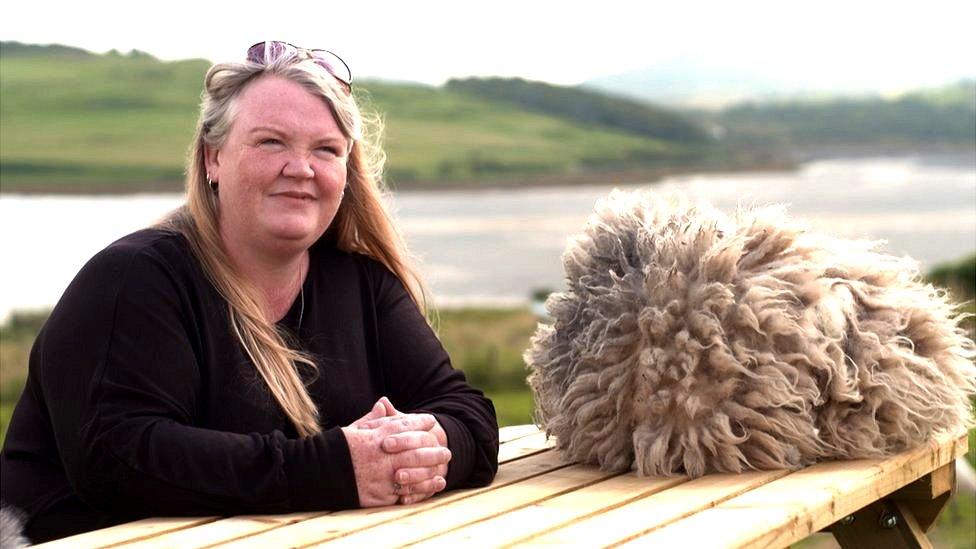Scientists use wool as plastic-free alternative for seaweed farms
- Published
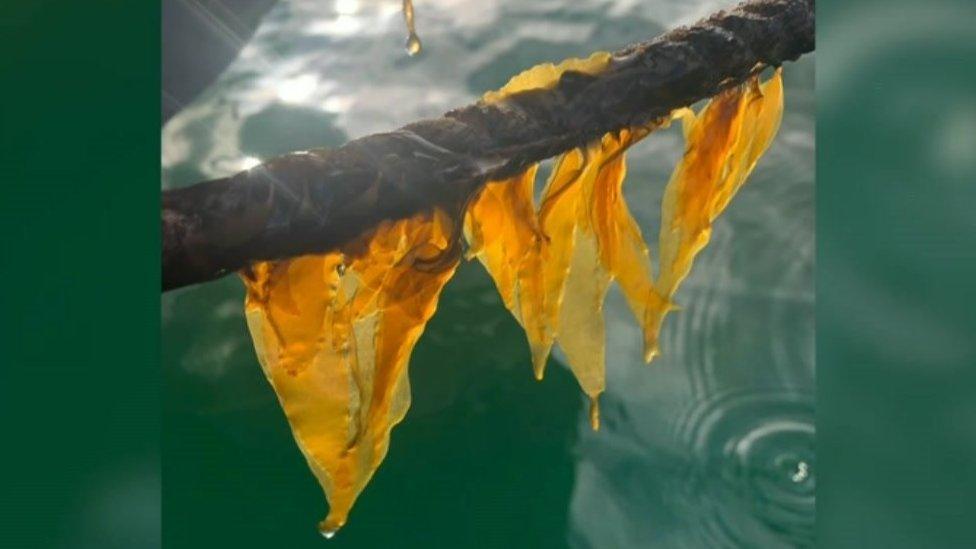
Seaweed quickly takes hold on wool rope, scientists found
Researchers say wool could replace plastic rope in seaweed farms.
A team at the Royal Agricultural University (RAU) in Cirencester discovered whole ecosystems on the wool when left underwater.
It is hoped their discovery will provide one solution to the problem of marine plastic pollution.
Wool rope could also provide new income for sheep farmers, the researchers said.
The wool was left in a Scottish loch for eight months.
Experts found the seaweed had grown well and had also attracted other marine creatures such as isopods - which are crustaceans.
Kate Drury, of RAU, told BBC West: "It was like wow, you've actually got the seaweed but it actually creates its own ecosystem as well."
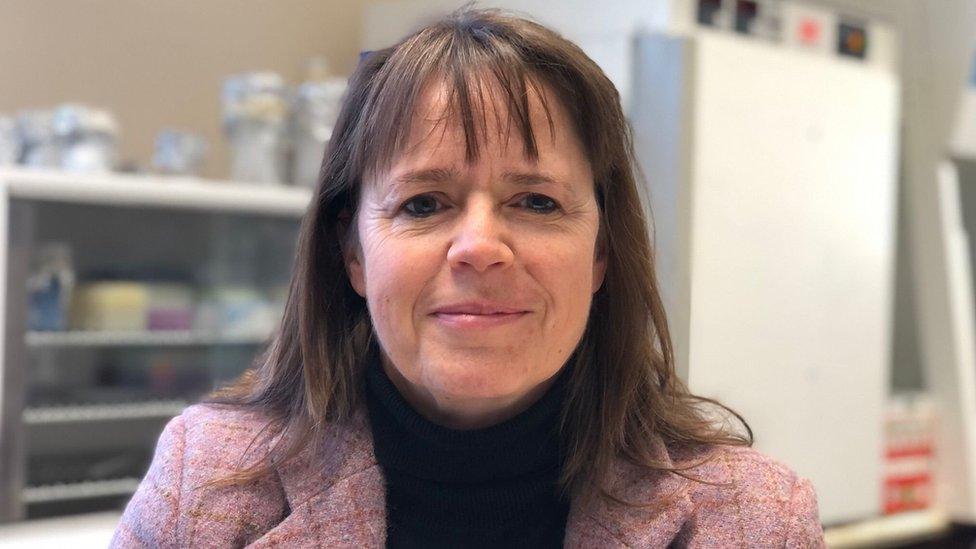
Kate Drury said the wool rope was completely biodegradable
Ms Drury, PhD student, said: "Seaweed also locks up nitrogen, so if you have really high nitrate fouled water from fertiliser and other industries, then that's collecting that nitrogen."
Seaweed farms can act as a vast carbon sink, and are seen as one solution to the climate crisis.
Ms Drury said: "[Wool rope] is completely biodegradable, so if it is lost and left where it shouldn't be, it is not as aggressive in the environment as say, plastic rope.
"So as this breaks down it breaks down into its original components - plastic doesn't."
She added: "If we can lift the price of the lower grades [of wool], the price of other [wool] will go up."
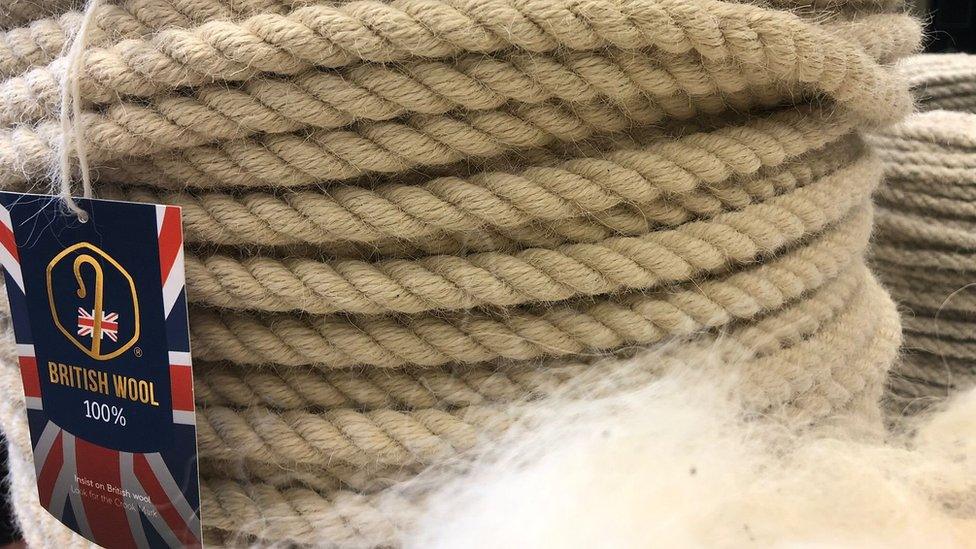
The rope creates a new use for low-grade wool

Follow BBC West on Facebook, external, Twitter, external and Instagram, external. Send your story ideas to: bristol@bbc.co.uk
- Published16 October 2022
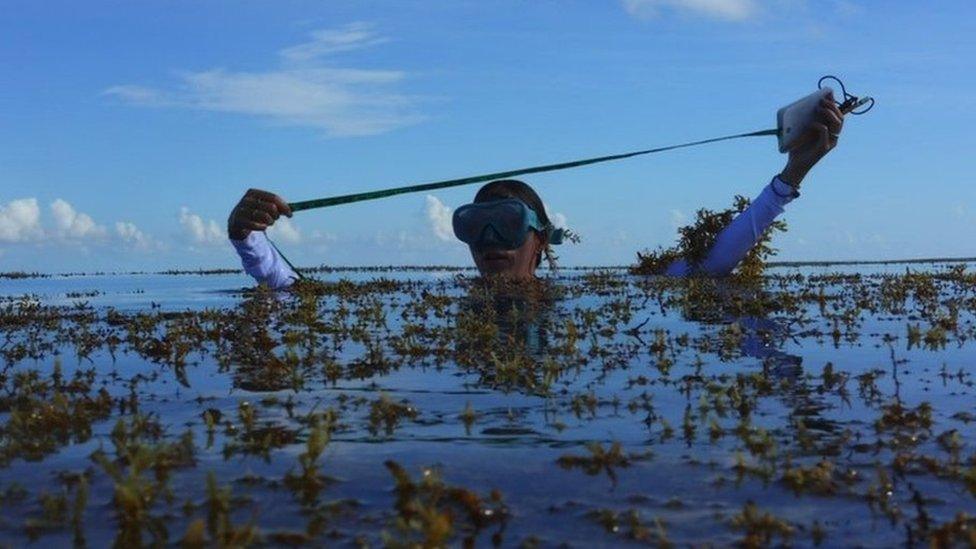
- Published27 August 2020
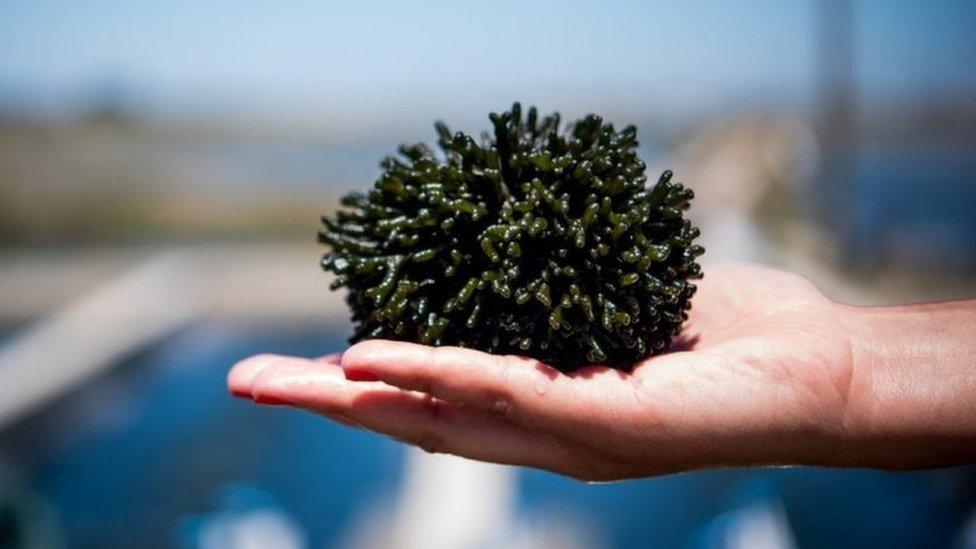
- Published8 August 2022
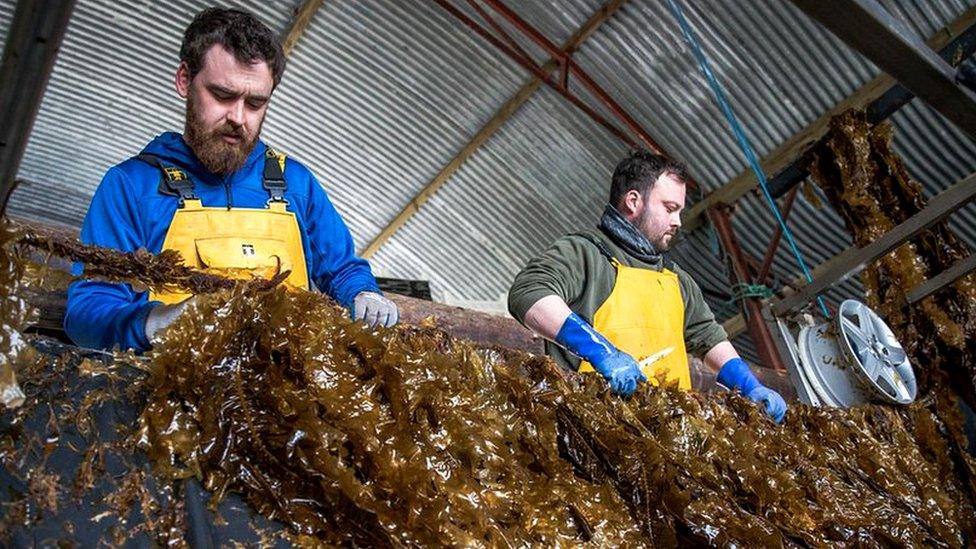
- Published13 August 2021
